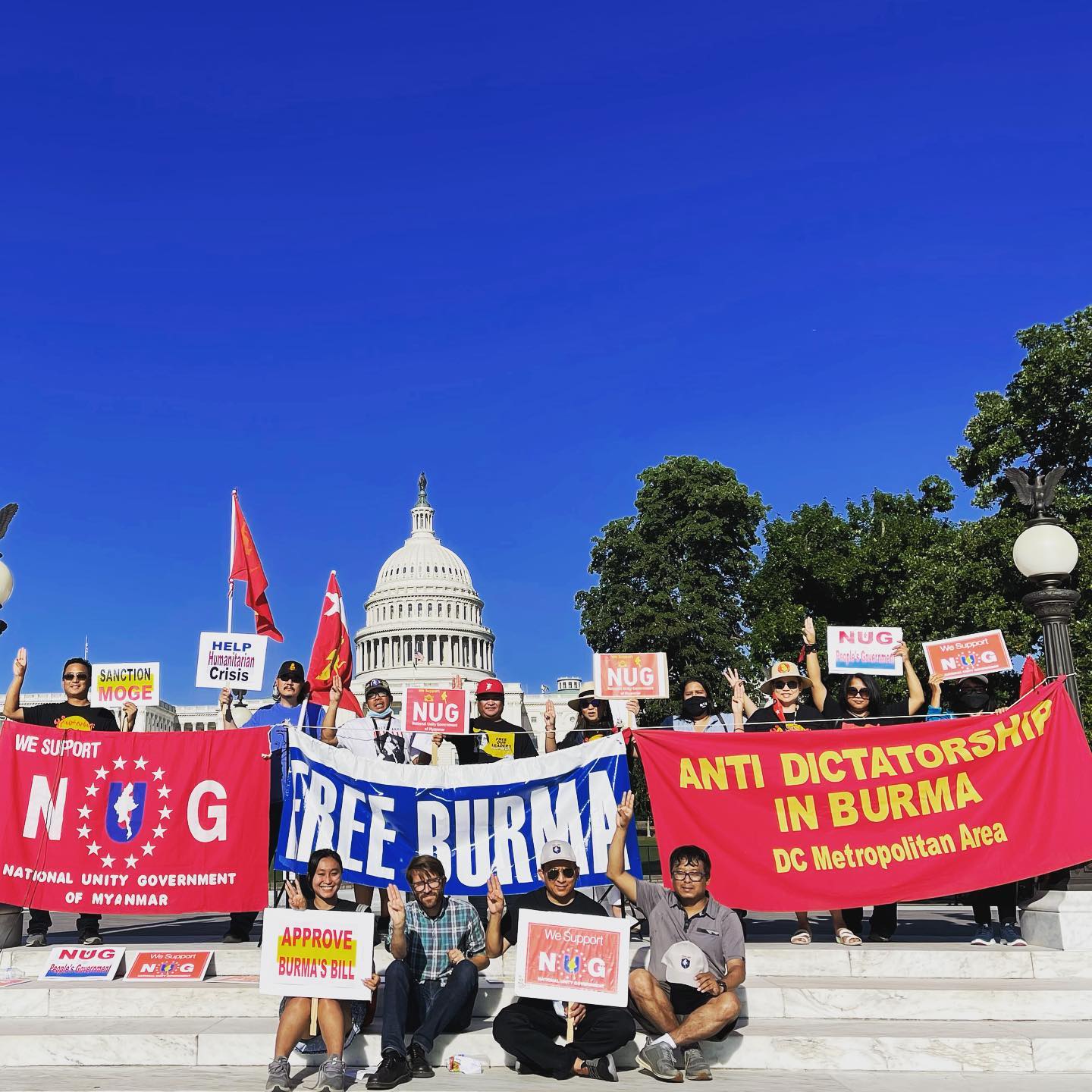This is from Insight Myanmar. You can also hear the podcast by going to that link. Haack was interviewed in July 2021.
Michael Haack’s lifelong advocacy for Myanmar had a fortuitous start.
An American University student in 2001, Haack was shaped by the preceding anti-globalization protests in Seattle and Quebec City. With a growing interest in the divestment movement, he took advantage of an opportunity to take an alternative winter break on the Thai-Myanmar border, an area he had been drawn to through his political and economic interests. While there, local people told him that they wanted foreign companies to stop doing business with the governing junta. So when he went back to university, he aligned himself with a Free Burma coalition, and with a few other students managed to develop a successful campaign that stopped several multi-national companies from operating in the country.
This success had a profound effect on him. “I was an incredibly awkward, 19-year-old that nobody had ever been afraid of, and no one would rationally be afraid of, but then this massive multinational corporation was afraid of me and listened to this campaign that I made, and I was like, ‘Holy shit this is real!’”
Since then, wherever his educational and professional opportunities would take him, the Burmese country and people would have a special place in his heart. Haack’s several-decade career supporting various causes and campaigns, as well as the work in his current position as Campaign Manager at The Campaign for a New Myanmar, are the fodder for this episode’s wide-ranging discussion.
The conversation starts by examining the role of the garment factory workers in the present resistance movement. As luck would have it, Haack had already been conducting a series of interviews before the coup broke with some of the union leaders for Jacobin, a left-leaning magazine, and so was well-positioned to understand the importance that the industrial sector would play in the unfolding drama. He weighs in on one of the most pressing debates currently roiling the geopolitical waters, regarding what kinds of sanctions Western governments should seek. Because innocent workers often indiscriminately bear the brunt of the punishment, Michael believes that the decision of withholding labor should primarily be up to them. He also notes that there is now international support for their efforts from other unions connected to the AFL/CIO, and highlights the courageous work largely led by young female leaders at the factories.
More recently, in an article appearing in the South China Morning Post, Haack reported on railway workers staying home as part of the Civil Disobedience Movement (CDM). Here he speaks to us about the importance of rail lines running at less than full capacity because trains are so essential to the country’s economy. Michael also conducted an interview with Dr. Sasa, the present government leader-in-exile, and in profiling him, found his personal story so incredible that he thought it could be “sold to Hollywood.”
Michael names two other factors that inform a more complete understanding of Myanmar’s current crisis. First, he explains that the Rohingya crisis, something which he had seen coming many years previously, has severely complicated the current situation. It obviously has had ramifications regarding the willingness of foreign powers (as well as celebrity advocates) to support the Myanmar resistance, given the horrific crimes against the Rohingya that the previous government turned a blind eye to at best, and helped to orchestrate at worst. But it has also affected the ability of Burmese political groups to work together in the wake of the coup. Second, he notes that, in contrast to previous protests of 1988 and 2007, people are no longer fighting for something they never had, but rather fighting for something they don’t want to lose. “You give somebody a taste of something, and then that promise and hope and the feeling of that just being pulled out from under you like a rug… is really tragic.”
On this latter point, Michael pushes back at criticism by more liberal colleagues in the West that the coup basically proves that “there never was a transition” to a free society in the 2010s. While it may be true that the liberalization did not go as far as some might have hoped, Michael feels “they’re wrong in the sense that subjectively, so many people in Myanmar experienced the transition. So to say that there was no transition is to literally just rob huge swaths of Myanmar society, definitely the majority, of their lived experience, their agency, and their understanding of what had happened over the last 10 years.”

